Black Bean Salad Recipe Easy Side Dish
Black bean salad is a great side dish or light meal to serve to groups. It is endlessly versatile, so it is easily prepared with…
Vegans do not eat meat, fish, or poultry and do not use other animal products and by-products such as eggs, dairy products, honey, leather, fur, silk, wool, cosmetics, and soaps derived from animal products.
Why do people choose to be vegan? This choice may be for health, environmental, and/or ethical reasons. For example, some vegans feel that by consuming eggs and dairy products they are promoting the meat industry.
This is understood by realizing that once the dairy cow or egg-laying chicken is too old to be productive, they are often sold as meat. Others avoid these items because they do not agree with the conditions associated with keeping these animals. The lifestyle choice by many to be a vegan is to promote a more caring and humane world.
The vegan lifestyle is a lifestyle of compassion. We don’t want to eat or harm our fellow earthlings. Eating animals and animal products is simply unnecessary.
So why would we inflict suffering on other living beings when there is no need to do it? Beats me. Animals feel pain, just like we humans do. If you’re not convinced, watch undercover videos from animal farms, feedlots, etc. and you will see the suffering, animals screaming out in pain.
Fortunately, public awareness of the treatment of animals on so-called factory farms is increasing, so denying knowledge of such practices is becoming increasingly difficult. Animals are cramped together tightly in filthy conditions.
They cannot move around (mostly, there isn’t even enough space to turn themselves around), they cannot perform their natural behaviors, a lot of them get sick and die before being killed at the slaughterhouse.
The slaughterhouse is the fate all animals raised for food must eventually meet, regardless of how they were raised. This also includes millions of male chicks and calves that accumulate as “waste products” of dairy and egg production.
Even though most of us instinctively know that the meat & dairy industries are bloody businesses, I would like to encourage you to watch these animal cruelty/abuse documentaries and “meet your meat”. Beware, though, they are tough to watch. So if you are very sensitive, be warned.
More and more studies are coming out proving that well-planned vegan diets are healthful, nutritionally adequate, and may provide health benefits for a lot of diseases. The American Dietetic Association has come to the conclusion that well-planned vegan diets are suitable for individuals of all stages of life, from pregnancy to old age, as well as for athletes.
To reap the benefits of a vegan diet, it is not enough to simply go vegan. To become healthy and feel great, it’s important to go plant-based as well. What’s the difference? Vegan “simply” means that you are not eating animals or animal products (dairy, eggs, but also things like gelatin and other waste products of the animal industry). Plant-based on the other hand means “centered around plant foods”: fruits, veggies, legumes, nuts, seeds, and grains in their whole form. So this means that the use of processed foods is to be eliminated or at least greatly reduced. Food preparation is done from scratch, from smoothies to big evening dinners.
One culprit a lot of people forget with a whole, plant-based diet is oil. Oil is a highly processed food that is 100% fat, missing the fiber and additional nutrients found in the whole food. And no, olive oil is no different, it’s not a heart-healthy food. All the important doctors promoting this kind of diet (Dr. John McDougall, Dr. T. Collin Campbell, Dr. Neal Barnard, Dr. Caldwell B. Esselstyn, Dr. Dean Ornish, and others) advise staying away from oil. Their low fat, no oil programs have been proven to reverse heart disease and diabetes, two major health problems of today.
I bet you all heard this before, but I’m going to reiterate it anyway because there are way too many people who haven’t gotten the memo. Our planet is always changing. Thanks to human ways, though, the direction we are headed in now is devastating. Climate change is real, and it is happening at troubling rates. As individuals, we sometimes feel lost at what we can do to help reduce the rate at which we’re going. Going vegan is one of the actions with the most impact.
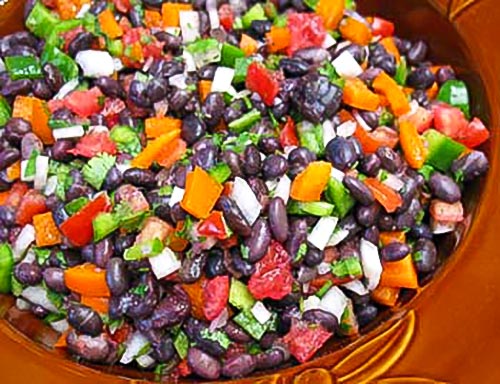
Black bean salad is a great side dish or light meal to serve to groups. It is endlessly versatile, so it is easily prepared with…
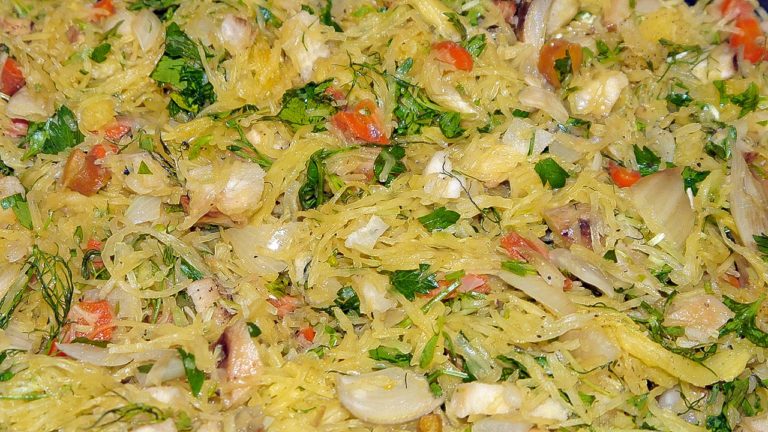
Discover the Delight: Spaghetti Squash and Roasted Vegetables Recipe In the realm of culinary artistry, finding the perfect balance between health and taste is an…
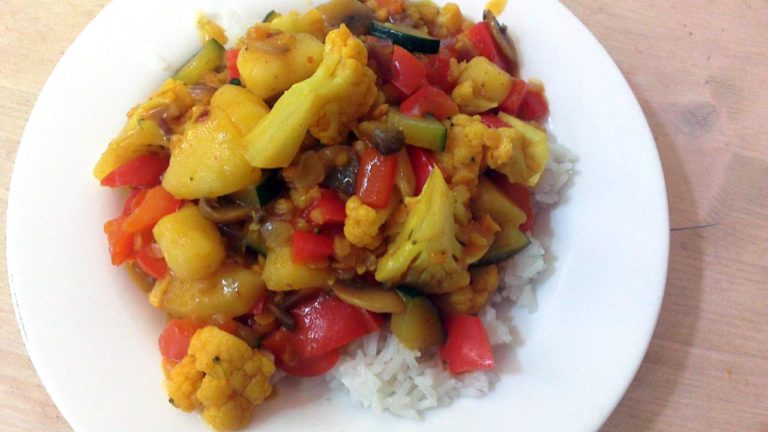
This Vegan Coconut Curry Recipe is Inspired by High Carb Hannah‘s Udon noodle recipe, I was in the mood for a vegan coconut curry today. It…
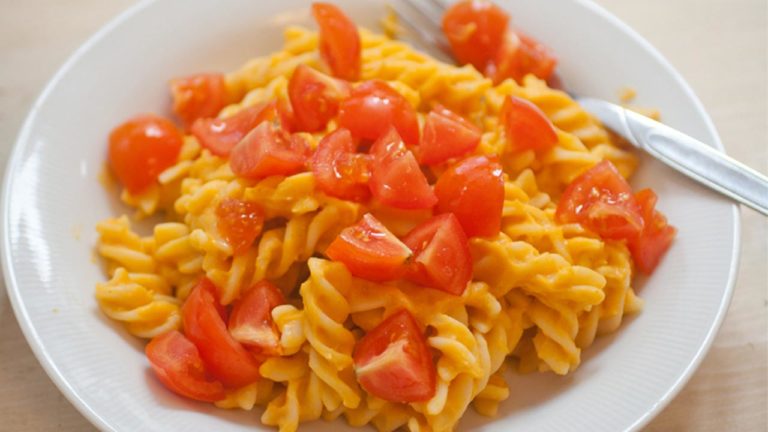
Embracing Creaminess Without Dairy Transitioning to a plant-based diet often means bidding farewell to beloved cheesy indulgences. However, this cheezy vegan pasta recipe defies expectations…
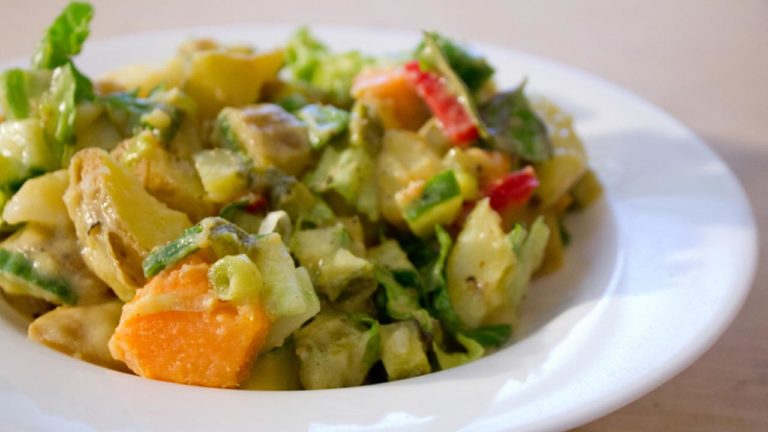
Exploring the World of Potato Salads Vegan Potato salad varieties are as diverse as opinions about them. The ongoing debate – Vegan mayonnaise-based versus oil…
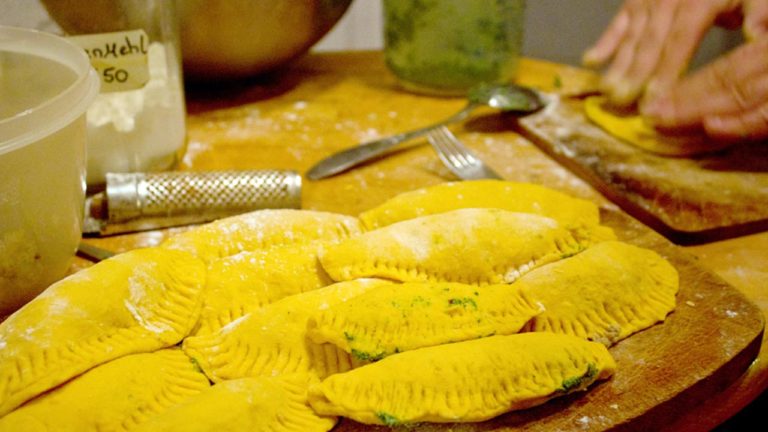
Embarking on a culinary journey often leads to unexpected and delightful discoveries. In the realm of homemade pasta, the adventure of creating vegan sweet potato…
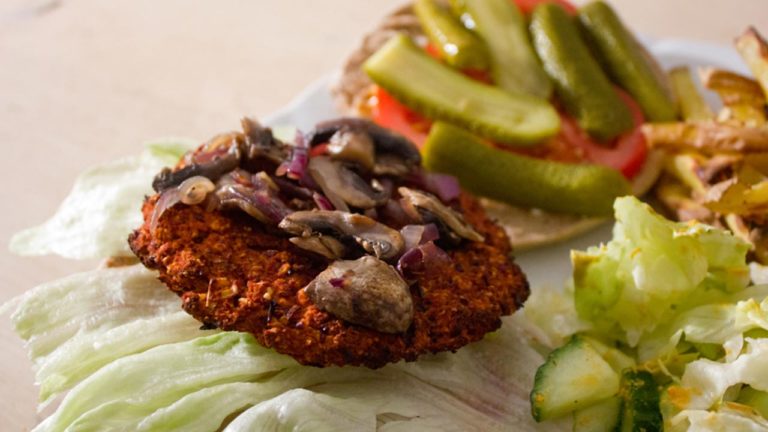
Crafting a Delicious Low-Fat Vegan Burgers Feast Embarking on a culinary adventure often means venturing beyond the familiar, and for my wife and me, Tuesdays…
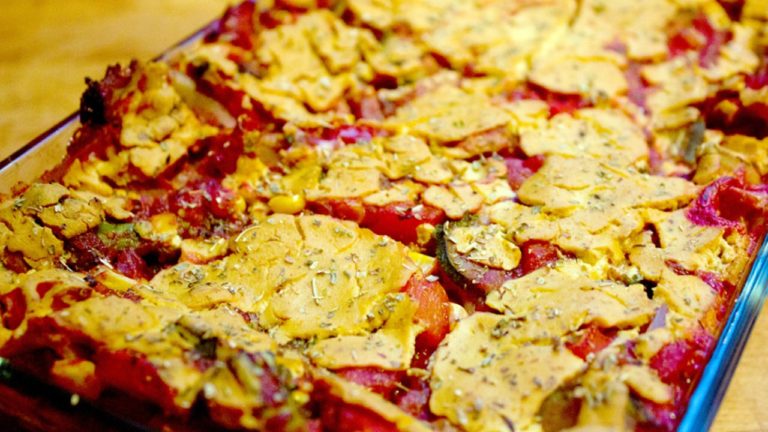
Embracing Healthier Indulgence with Low-Fat Vegan Lasagna Craving the Comfort, Opting for Health: Who can resist the tantalizing layers of lasagna, packed with flavors and…
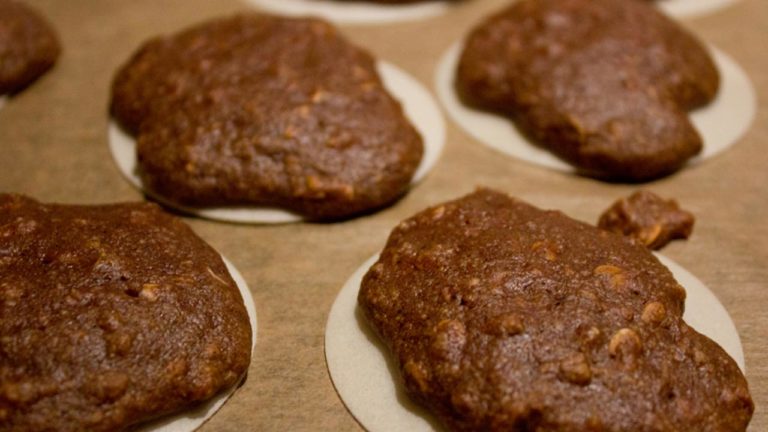
Crafting Low-Fat Vegan Gingerbread Cookies Delightful Seasonal Treats without the Guilt The holiday season is synonymous with indulgence, especially when it comes to the array…
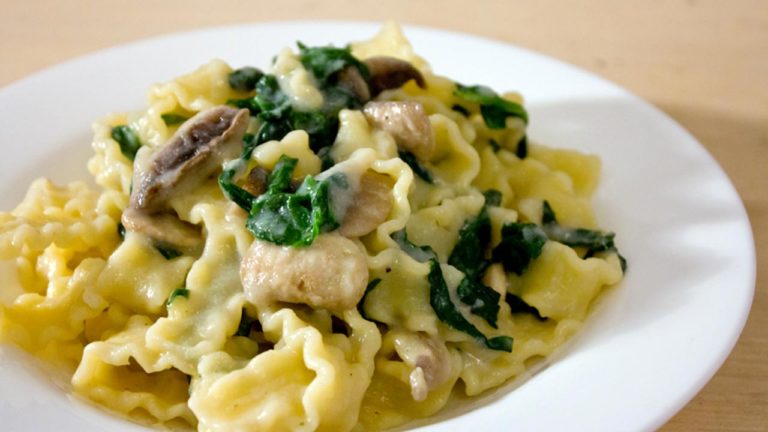
Indulging in comfort food doesn’t have to mean sacrificing health. Enter the world of a creamy, low-fat vegan pasta Alfredo that redefines the classic, offering…